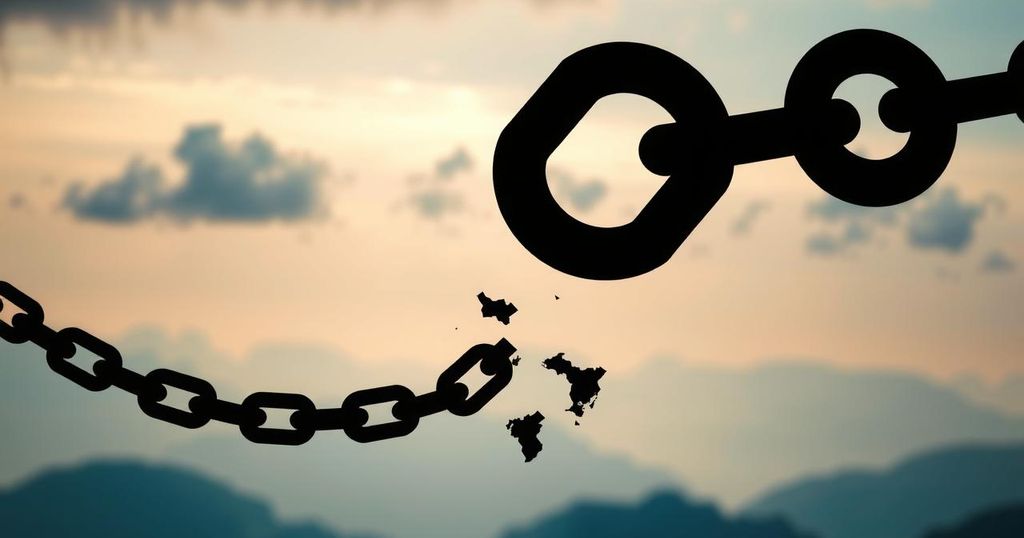M23 rebels are advancing towards Bukavu, triggering fear as DRC’s President mobilizes military forces and refuses dialogue. Supported by Rwandan troops, M23 claims to protect ethnic Tutsis, while tensions stem from historical conflicts and the quest for control over mineral resources. Regional leaders seek resolution but the situation remains volatile, with dire humanitarian consequences in affected areas.
The M23 rebels, who recently seized Goma, are advancing towards the provincial capital of Bukavu in South Kivu, inciting widespread fear among residents. The escalating tensions in central Africa have prompted the Democratic Republic of Congo’s (DRC) President to initiate a significant military mobilization to confront the rebellion, while his defense minister has rejected any talks with the rebels.
The DRC’s Defense Minister has firmly expressed a commitment to fight against the M23 rebels, who have gained control of Goma, a city hosting over six million individuals displaced by ongoing conflicts. Although the rebels have signaled a willingness to engage in dialogue—backed by the East African regional bloc— their stated objective remains the acquisition of political power.
Rwanda’s President Paul Kagame recently conferred with Angola’s President Joao Lourenco, who is acting as a mediator in the situation. Both leaders reaffirmed their dedication to collaborating with other African nations to alleviate the hostilities surrounding the conflict, reflecting a regional approach to resolution.
The M23 rebels are reportedly supported by approximately 4,000 Rwandan troops, adding complexity to the conflict among the over 100 armed groups vying for dominance in the mineral-rich eastern DRC. This area is pivotal due to its vast mineral resources essential for global technology applications.
In Goma, the deteriorating circumstances have led to alarming situations with corpse-laden streets, rampant looting, and severe shortages of electricity and water. The turmoil’s origins lie in deep-seated ethnic conflict, traced back to the 1994 Rwandan genocide that claimed the lives of around 800,000 individuals, disproportionately affecting the Tutsi population that the M23 claims to protect.
The ongoing conflict involving M23 rebels in the DRC is rooted in historical ethnic tensions exacerbated by the 1994 Rwandan genocide. Following the genocide, a significant number of Hutus fled to the DRC, leading to long-standing hostilities in the region. The M23 rebels, composed predominantly of Tutsis, assert they are defending their ethnic community against ongoing persecution, particularly from Hutu populations. In addition to ethnic dimensions, the rich mineral resources of eastern DRC have intensified the clash among more than 100 armed factions.
In summary, the situation in the DRC is rapidly deteriorating as M23 rebels advance towards key cities, waging a conflict deeply intertwined with historical ethnic disputes and regional politics. As both DRC and Rwanda navigate their responses, the potential for further instability looms large amidst efforts for a negotiated resolution. The humanitarian implications are substantial, affecting millions displaced and trapped in the cycle of violence.
Original Source: www.vaticannews.va






